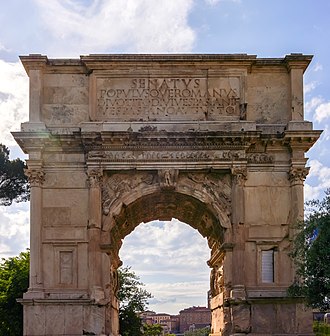Titus Last Name Origin, History, and Meaning
Where did the surname Titus come from? What does the surname Titus mean? Discover the history and meaning of the last name Titus and family migration on YourRoots Map.
Surname Titus Origin: What does the last name Titus mean?
The surname Titus has its origins in the United States in the early 17th century, according to YourRoots data. It has also been found in countries like England, Netherlands, Germany, and Canada, indicating a global spread over the centuries. By the 20th century, the Titus surname became prominent in the United States and can be seen in countries such as Canada, England, Australia, South Africa, Germany, Netherlands, New Zealand, and Brazil. It remains a prevalent surname worldwide.YourRoots data confirms the presence of the Titus surname in various countries, showcasing its global reach and distribution. While specific historical details may be limited, the Titus surname has a rich history that has evolved and spread across different regions and cultures over time. This enduring surname continues to reflect a diverse heritage and is found in numerous countries worldwide.
Titus Last Name History: Where did the last name Titus come from?
Origin of Titus Surname: Where does the last name Titus originate from?
According to YourRoots data, the surname Titus first appeared in records from the United States around the early 17th century. Please note that this reflects only YourRoots data for the exact Titus spelling and does not include other record sources or surname variations.
History of the Last Name Titus: What does the Titus surname history look like in the early days?
The Titus surname remained closely associated with the United States in the 17th century. YourRoots data also shows Titus family records in countries like England, Netherlands, Germany, and Canada, indicating global spread over the centuries.
Global Spread: Where can we find the Titus surname today?
By the 20th century, the volume of records with the Titus surname grew significantly in the United States. The Titus surname remains prominent in countries like Canada, England, Australia, South Africa, Germany, Netherlands, New Zealand, and Brazil. It appears in many countries around the world.
Explore Titus last name heritage and Titus surname origin based on YourRoots Map data
 VIEW THE ORIGIN OF SURNAME TITUS
VIEW THE ORIGIN OF SURNAME TITUSFamous People With Titus Surame?

Arch of Titus
Arch of Titus (c. 39 AD – c. 81 AD) was a Roman honorific arch built by Emperor Domitian to commemorate his brother Titus's deification and victory over the Jewish rebellion. Located in Rome, the arch depicts the Roman triumphal procession after the fall of Jerusalem in 71 AD. It became a symbol of the Jewish diaspora and inspired triumphal arches worldwide, including the Arc de Triomphe in Paris. The arch's restoration in the 19th century revealed intricate sculptural details, such as the Menorah relief representing the spoils from the Temple in Jerusalem. A key figure in Roman history, the Arch of Titus remains a significant landmark today.

Saint Titus
Saint Titus (Unknown – Unknown) was an early Christian missionary and church leader who was a companion and disciple of Paul the Apostle. He is believed to have been a Gentile converted to Christianity by Paul, consecrated as Bishop of the Island of Crete. Titus was known for his role as a troubleshooter and peacemaker in the early church, organizing collections for the poor and appointing elders in various cities. He is venerated as a saint in various Christian denominations and is the patron saint of the United States Army Chaplain Corps. Titus' relics are venerated in the Church of St. Titus in Crete.

Temple of Vespasian and Titus
The Temple of Vespasian and Titus (Full Name = Temple of Vespasian and Titus) is a Roman monument dedicated to the deified emperors Vespasian and Titus. Located in Rome's Roman Forum, it honors the Flavian Dynasty and showcases the Roman tradition of deifying emperors. The temple's construction and renovation by Titus and Domitian demonstrate the importance of family legacy in ancient Rome. Despite suffering damage over the centuries, the remaining structure still stands as a testament to the power and glory of the Flavian emperors.

Baths of Titus
The Baths of Titus (81 AD) were built by Roman Emperor Titus in Rome, featuring standard design for public bathing complexes. The baths included frigidarium, tepidarium, and caldarium, but lacked a natatio. Restored by Hadrian, the ruins were eventually demolished, with mural designs by Famulus becoming known as "grotesque".

Robin L. Titus
Robin L. Titus (February 21, 1954 - ) is an American physician and politician known for her role as a Republican member of the Nevada Senate. She previously served in the Nevada Assembly and is recognized for her medical practice in Lyon County. Titus is also the president of the Smith Valley Historical Society and was elected Senate Minority Leader in January 2024. With a background in medicine and a passion for public service, Titus continues to make a positive impact in her community.
All images displayed on this page are sourced from Wikipedia or Wikimedia Commons.We use these images under their respective Creative Commons or public domain licenses. Wherever applicable, author attributions and license information are provided. If you believe an image is used incorrectly or outside its license terms, please contact us so that we can review and correct the issue.




.png)